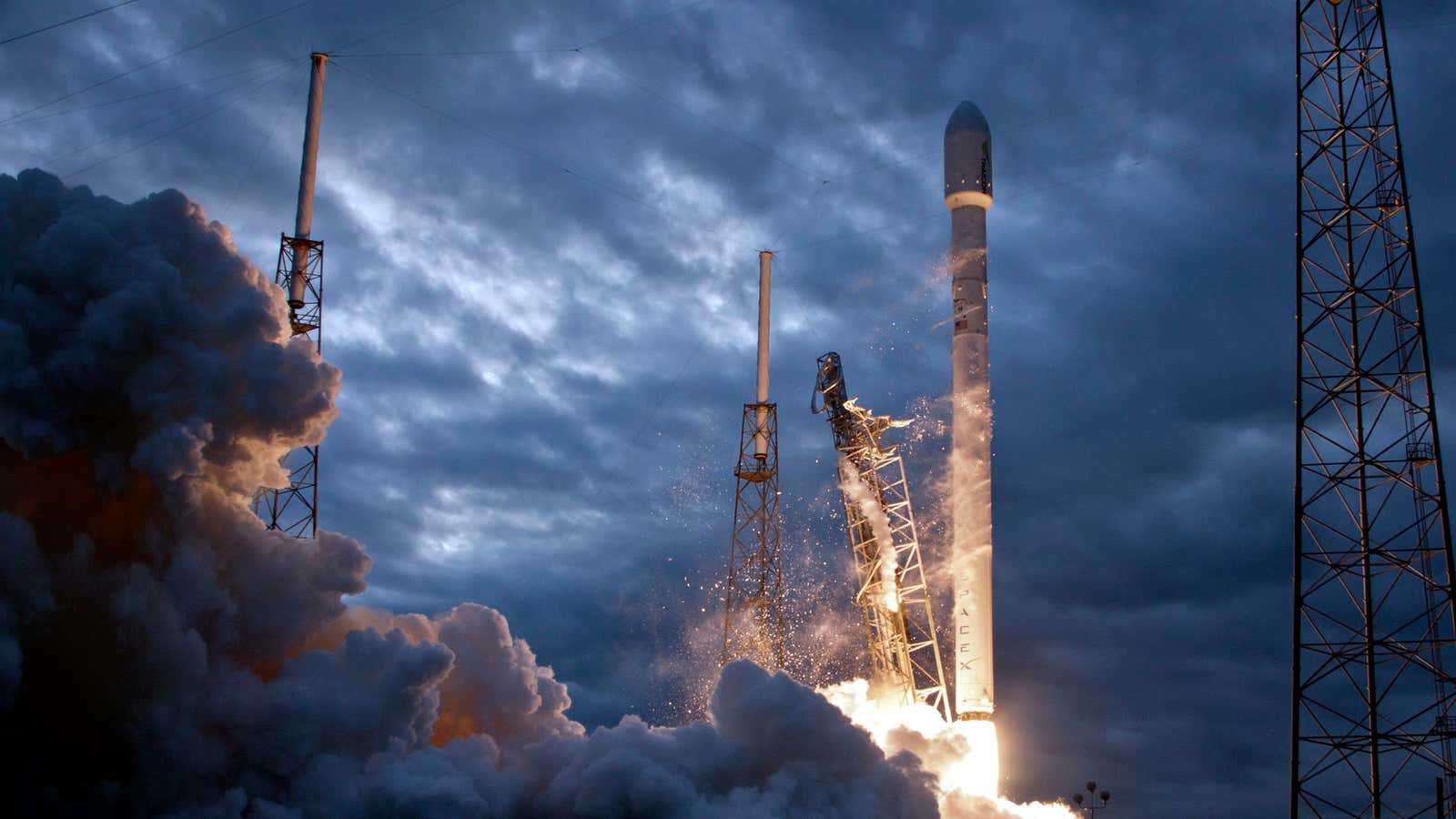The US Air Force announced today that it certified SpaceX to launch national security payloads, from spy satellites to mystery drones, ending the monopoly held by the Boeing-Lockheed Martin joint venture, United Launch Alliance (ULA).
The move is another milestone in the development of SpaceX from start-up to a legitimate aerospace company, giving it access to a major customer for its Falcon 9 rocket, which can carry spacecraft weighing several tons into low-earth and geo-synchronous orbits. The company has already successfully performed 18 missions with the rocket, including for NASA and private companies, but national security launches come with a raft of additional technical, safety, and security requirements.
The process was nothing if not contentious: Even as 150 Air Force personnel worked side-by-side with SpaceX engineers and program managers to certify the launch system, the company’s lobbyists and attorneys were waging a knock-down, drag-out war against ULA and the Air Force in the halls of Congress and the Pentagon to convince officials that SpaceX’s much cheaper service should be an option for the military.
Indeed, after the Air Force awarded a controversial multi-year, $11 billion contract to ULA despite promises to open up competition, SpaceX sued the government for improperly awarding the contract; SpaceX founder and CEO Elon Musk hinted at corruption in the contracting process. Eventually, the two sides reached a sealed settlement that SpaceX officials say committed the Air Force to more competition.
The company also leveraged geopolitics to fight back against its competitors, stressing ULA’s current dependence on Russian-made engines as a detriment in a time of increased tension between the US and Vladimir Putin’s Russia.
After the certification, both the Air Force and SpaceX seemed ready to forget any bad blood.
“SpaceX’s emergence as a viable commercial launch provider provides the opportunity to compete launch services for the first time in almost a decade,” Secretary of the Air Force Deborah Lee James said in a statement. “Ultimately, leveraging of the commercial space market drives down cost to the American taxpayer and improves our military’s resiliency.”
Musk said that “we thank the Air Force for its confidence in us and look forward to serving it well.”
SpaceX’s first opportunity to bid for a national security launch will come next month, when the Air Force requests proposals to launch its next-generation global positioning satellites.
